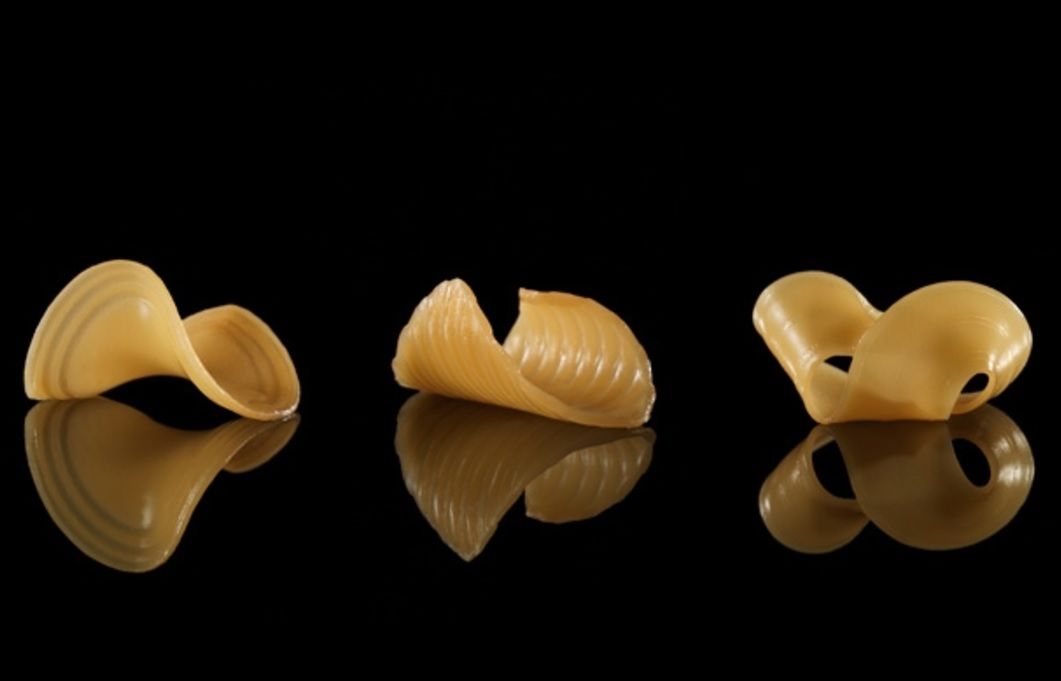
Researchers at MIT have been playing with their food in the name of science, concocting a shape-shifting dining experience that could significantly reduce food shipping and packaging costs.
The team from MIT's Tangible Media Group created flat sheets of gelatin and starch that transform into 3D shapes, such as flowers and pasta forms, when submerged in water.
The "culinary performance art" is a practical way to stack the edible sheets into more efficient packaging.
"We did some simple calculations, such as for macaroni pasta, and even if you pack it perfectly, you still will end up with 67 percent of the volume as air," said Wen Wang, a co-author of the research, set to be published in a paper this month at the Association for Computing Machinery's 2017 Computer-Human Interaction Conference on Human Factors in Computing Systems.
"We thought maybe in the future our shape-changing food could be packed flat and save space.
Wang and her co-authors came up with the novel food after researching a bacterium that changes its shape when exposed to moisture. When they realized that the same bacterium is used in the fermentation process of a traditional Japanese food called natto, the researchers decided to test it in the 3-D printing process of edible cellulose onto layers of gelatin containing the bacteria.
Printing the cellulose into different patterns on the gelatin produced different responses when it was introduced to water.
"This way you can have programmability," said Lining Yao, lead author of the paper and former MIT graduate student. "You ultimately start to control the degree of bending and the total geometry of the structure."
The researchers then worked with a local chef to design different culinary creations, before building computational models of the material's transformations and an online interface to allow users to design their own edible shapes.
"We envision that the online software can provide design instructions, and a startup company can ship the materials to your home," Yao said. "With this tool, we want to democratize the design of noodles."
Uncommon Knowledge
Newsweek is committed to challenging conventional wisdom and finding connections in the search for common ground.
Newsweek is committed to challenging conventional wisdom and finding connections in the search for common ground.
About the writer
Anthony Cuthbertson is a staff writer at Newsweek, based in London.
Anthony's awards include Digital Writer of the Year (Online ... Read more
To read how Newsweek uses AI as a newsroom tool, Click here.








